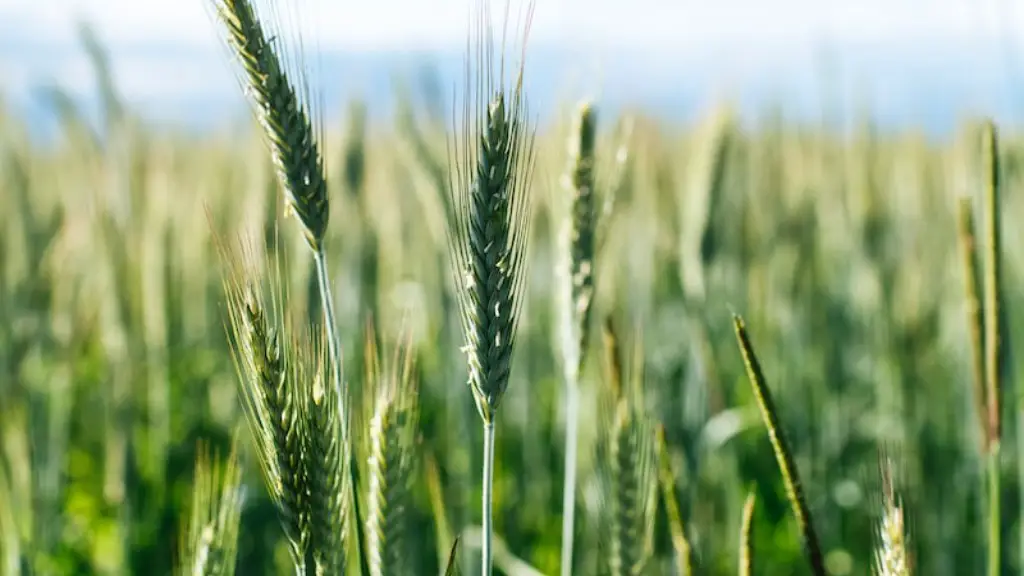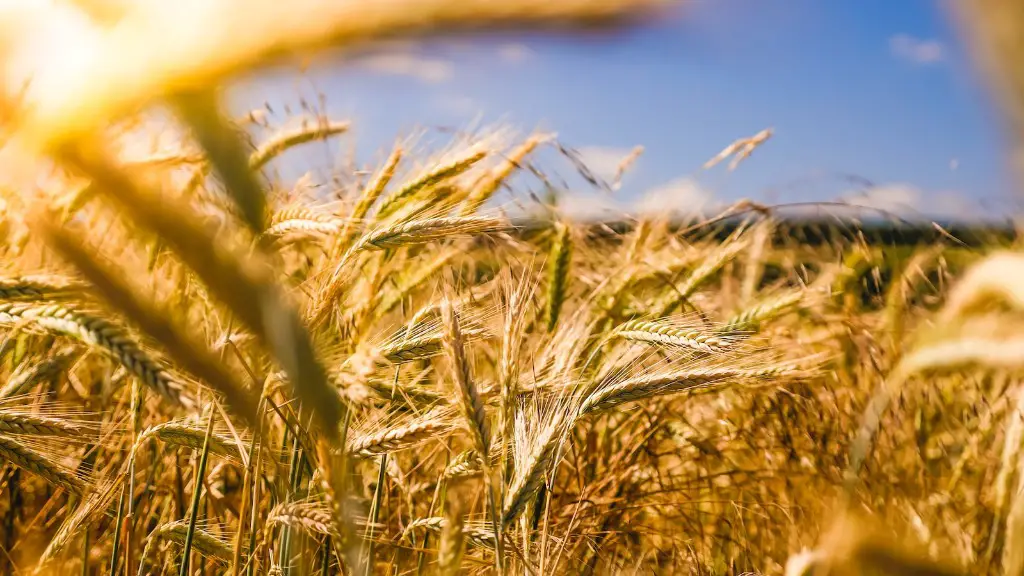In the medieval period, social organization in Latin Western/Feudal Europe was based on the principles of hierarchy and land ownership. The agricultural revolution of the 12th and 13th centuries led to a significant increase in the production of food, which allowed for the growth of cities and the rise of a new urban middle class. This social changes had a profound impact on the structure of society, and the songs, plays, and art of the time reflect the new class consciousness that was emerging.
The agricultural revolution in Europe led to a number of changes in the social organization of feudal Europe. One of the most noticeable changes was the increase in the size of villages and towns. This increase in population allowed for the growth of a middle class, which in turn led to the development of a more diverse range of occupations. The growth of the middle class also meant that there was more social mobility, as people were able to move up or down the social ladder depending on their economic circumstances. Another consequence of the agricultural revolution was the decline of the feudal system, as the increased economic activity led to the development of a more complex economic system that was less reliant on the feudal system of land ownership and production.
The growth of agriculture resulted in intensification, which had important consequences for social organization. Larger groups gave rise to new challenges and required more sophisticated systems of social administration. The development of agriculture led to the formation of civilizations, which were characterized by large-scale social organization, the existence of cities, and the development of new technologies. The growth of agriculture also resulted in the growth of trade and commerce, which had a profound impact on the social and economic development of societies.
The development of agriculture led to the rise of social classes in human societies for a number of reasons. First, agriculture allowed farmers and traders to accumulate wealth. This allowed them to buy land and other resources, which made them more powerful than those who did not have access to these resources. Second, agriculture allowed for the development of cities and civilizations. This led to the rise of government and other institutions, which created a hierarchy in society. Finally, agriculture allowed for the development of technology and food production, which led to the rise of industry and the creation of jobs. All of these factors led to the rise of social classes in human societies.
How did agriculture change Europe during the medieval period
The three-crop rotation was the biggest and best change in farming during medieval times, where three strips of the field would be used in rotation to keep fecund soil. This system allowed for a more efficient use of land and helped to ensure that the soil remained fertile. Vertical windmills and vastly improved water mills also helped to improve the efficiency of farming during this period.
The agricultural revolution was a major turning point in human history. It led to the development of permanent settlements and the switch from a nomadic hunter-gatherer lifestyle to a more settled one. Agriculture allowed for the domestication of plants and animals, which led to the development of civilizations. The agricultural revolution was a major factor in the growth of the human population and the rise of cities.
When early humans began farming, they were able to produce enough food that they no longer had to migrate to their food source. This meant they could build permanent structures, and develop villages, towns, and eventually even cities. Closely connected to the rise of settled societies was an increase in population.
More abundant food supplies could support denser populations, and farming tied people to their land. Small settlements grew into towns, and towns grew into cities. Agriculture produced enough food that people became free to pursue interests other than worrying about what they were going to eat that day. This led to the development of civilizations and the rise of the human race.
Agricultural practices have had a profound effect on society. They have changed our diets, the role of women in agricultural production, and the economic purpose of agriculture.
Changing diets:
The way we eat has changed drastically due to agricultural practices. The introduction of new crops and livestock, and the way they are grown and raised, has altered the types and amounts of food we consume. For example, the increased use of irrigation has made it possible to grow crops in arid regions that were previously uninhabitable. This has led to a diversification of diets, as people now have access to a greater variety of food than ever before.
The role of women in agricultural production:
The role of women in agriculture has changed significantly over time. In the past, women were responsible for the majority of the agricultural work, including planting, harvesting, and preparing food. Today, women are still involved in agriculture, but their involvement is typically limited to tasks such as marketing and selling products, and managing finances. This change is largely due to the introduction of new technology, which has made agricultural production more efficient and less labor-intensive.
The economic purpose of agriculture:
The economic purpose of agriculture has also changed over time. In
The Agricultural Revolution was a period of unprecedented agricultural productivity and technological advancement that occurred in many parts of the world in the 18th and 19th centuries. The increase in agricultural production contributed to unprecedented population growth and new agricultural practices, triggering such phenomena as rural-to-urban migration, development of a coherent and loosely regulated agricultural market, and the rise of new agrarian states. The Agricultural Revolution also had a profound impact on the environment, causing large-scale clearing of forests and the transformation of marginal lands into productive farmland.
As populations shifted from hunting and gathering to agriculture, cities began to form and society became more stratified. The wealthy elite reaped the benefits of this new way of life, while the poor were left behind. This disparity between the haves and the have-nots has only increased over time, culminating in the massive wealth inequality we see today. While there are many factors that contribute to this problem, it all started with the Agricultural Revolution.
The 18th century was a time of great progress in agricultural techniques. This led to higher yields and better food quality. Among the innovations of this period were the extension of farmland, the introduction of new crops, and the end of fallowing thanks to crop rotation. These advances made a significant impact on the food supply and helped to improve the standard of living for many people.
What was the impact of the agricultural revolution in Europe?
The Agricultural Revolution was a pivotal point in the history of human civilization. It marked a major turning point in our development, as we began to experiment with new crops and new methods of crop rotation. These new farming techniques allowed us to increase our output and led to stronger crops. Additionally, advancements in irrigation and drainage further increased productivity. The Agricultural Revolution was a key factor in our development as a species, and its impact is still felt today.
The Agricultural Revolution of the 18th century marked a significant turning point in European agriculture. For the first time, new techniques of crop rotation and livestock utilization were employed which led to better crop yields, a greater diversity of wheat and vegetables, and the ability to support more livestock. This Agricultural Revolution paved the way for a more prosperous and populous Europe.
How did agriculture influence human settlement
Agriculture has allowed people to stay in one place and has increased food production, causing the population density to expand. This growth in population density has provided a critical mass of people to sustain and spread contagious infectious diseases.
The Agricultural Revolution was a pivotal moment in human history, and set the foundation for what we know as modern human life. The ability to stay in one general area and cultivate our own food made life much more manageable, and contributed to the growth of human society in terms of culture, technology, and more. This revolution was a key turning point in our evolution as a species, and has had a profound impact on the way we live today.
Why is the Agricultural Revolution called the most important change in human history?
The way humans live has changed significantly since they first learned how to domesticate plants and animals for food. They can now produce a reliable food supply, which has allowed their population to grow at a faster rate. Nomadic people have given up their traditional way of life and have started to live in permanent communities.
Agrarian social structure refers to the way in which people who work in agriculture are organized. This can include the family structure of farmers, the relationship between farm workers and their employers, and the way in which different farmers cooperate with each other.
Conclusion
The agricultural revolution had a profound impact on the social organization of Latin Western/Feudal Europe. The most significant change was the emergence of a new class of people known as the peasantry. Prior to the introduction of agriculture, most people lived as nomadic hunter-gatherers. The introduction of agriculture led to the formation of permanent settlements, which allowed for the accumulation of wealth and the rise of social stratification. The new class of peasant farmers was typically bound to the land they worked, and they were required to pay taxes and fees to the lord or nobles who owned the land. This system of social organization was known as feudalism.
The agricultural revolution had a profound impact on social organization in Latin Western/feudal Europe. The advent of large-scale agriculture allowed for the rise of a new class of landowners and the growth of towns and cities. This in turn led to the decline of the feudal system and the rise of a more centralized government. Agriculture also had a significant impact on the economy, as it allowed for the growth of trade and commerce.





